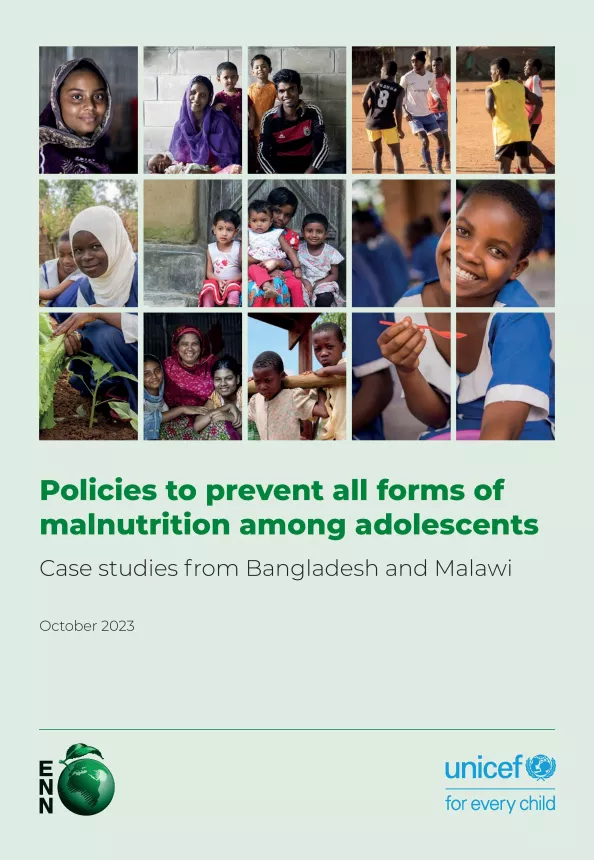Policies to prevent all forms of malnutrition among adolescents: Case studies from Bangladesh and Malawi
Publication details
Adolescence presents opportunities for investing in intergenerational health and well-being yet remains neglected in nutrition policies at global and national levels. In these case studies, Emergency Nutrition Network (ENN), in collaboration with the UNICEF Bangladesh and UNICEF Malawi, reviewed the progress made in Bangladesh and Malawi to prioritise adolescents within national nutrition, health, economic and education policy frameworks.
For each country, a situation analysis was conducted to map national policies against a combined policy framework developed using recommendations from the 2021 Lancet series on Adolescent Nutrition and other relevant reports and frameworks: the World Health Organization (WHO) Global Accelerated Action for the Health of Adolescents (AA-HA!) report, the 2020 UNICEF conceptual framework on maternal and child nutrition, and the adolescent well-being framework proposed by Ross et al. The recommended actions in the combined framework also align with the UNICEF strategic framework for nutrition programming during middle childhood and adolescence. The extent to which national policies have been implemented was also explored, and priority actions were recommended to address policy gaps.
Evidence from these case studies provides examples of how the development and implementation of policies can support the nutrition, health and well-being of adolescents across diverse contexts.

Download
Cite this publication
Reference this page
Natasha Lelijveld, Stephanie V Wrottesley, Amir Samnani, Benson Kazembe, Owen Nkhoma, Nerisa Pilime, Chimwemwe Jemitale, Ireen Akhter Chowdhury, Safina Abdulloeva and Deepika Sharma (2023). Policies to prevent all forms of malnutrition among adolescents: case studies from Bangladesh and Malawi. Emergency Nutrition Network (ENN): Kidlington, Oxford UK.